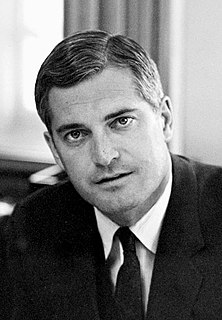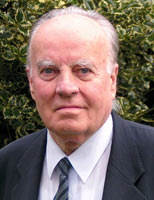A Quote by Kevin DeYoung
The finality of Christs redemption for us is intimately tied to the finality of his revelation to us. . . . If we say revelation is not complete, we must admit that somehow the work of redemption also remains unfinished. . . . Scripture is enough because the work of Christ is enough. They stand or fall together.
Related Quotes
It is clear that there must be difficulties for us in a revelation such as the Bible. If someone were to hand me a book that was as simple to me as the multiplication table and say, “This is the Word of God; in it He has revealed His whole will and wisdom,” I would shake my head and say, “I cannot believe it; that is too easy to be a perfect revelation of infinite wisdom.” There must be, in any complete revelation of God's mind and will and character and being, things hard for the beginner to understand; and the wisest and best of us are but beginners.
The revelation of His glory includes seeing One so high (transcendence) who went so low (condescension) to bring us so near (redemption) because we are so dear (Bride). The Most High God went so low because of such great desire to partner with us... We are awestruck by His power, overwhelmed by His humility, and made confident by His love.
If I marry: He must be so tall that when he is on his knees, as one has said he reaches all the way to heaven. His shoulders must be broad enough to bear the burden of a family. His lips must be strong enough to smile, firm enough to say no, and tender enough to kiss. Love must be so deep that it takes its stand in Christ and so wide that it takes the whole lost world in. He must be active enough to save souls. He must be big enough to be gentle and great enough to be thoughtful. His arms must be strong enough to carry a little child.
I believe in revelation, but not in revelation which each religion claims to possess, but in the living revelation which surrounds us on every side - mighty, eternal, unceasing, incorruptible, clear, distinct, universal as is the being from whom it proceeds, in that revelation which speaks to us and penetrates us from the moment we are born until we die.
Worldviews have four elements that help us understand how a person's story fits together: creation, fall, redemption, and restoration. "Creation" tells us how things began, where everything came from (including us), the reason for our origins, and what ultimate reality is like. "Fall" describes the problem (since we all know something has gone wrong with the world). "Redemption" gives us the solution, the way to fix what went wrong. "Restoration" describes what the world would look like once the repair begins to take place.
We want to fan the flames of Christians for whom inerrancy and the authority of Scripture are not mere shibboleths, but part of her life beat, part of the beating heart of what makes them tick. They revere Scripture, not because Scripture becomes an idol, but because it discloses God who is especially come after us in salvation and redemption through the person of his son, his cross, his resurrection, the full sweep of the gospel.
In our learning, let us not neglect the fountain of revelation. The scriptures and the words of modern-day apostles and prophets are the sources of wisdom, divine knowledge, and personal revelation to help us find answers to all the challenges in life. Let us learn of Christ; let us seek out that knowledge which leads to peace, truth, and the sublime mysteries of eternity.
One major difference between Mormons and evangelicals on the subject of revelation is that Latter-day Saints believe that God has appointed modern-day prophets and apostles to receive revelation for Christ's church. All church members may receive revelation appropriate for their particular callings or positions within the church and their families, but never in contradiction to church doctrine or policy. So Mormonism has both a democratic practice of revelation that would resonate with evangelicals, but also an institutional understanding of revelation foreign to evangelicalism.






































